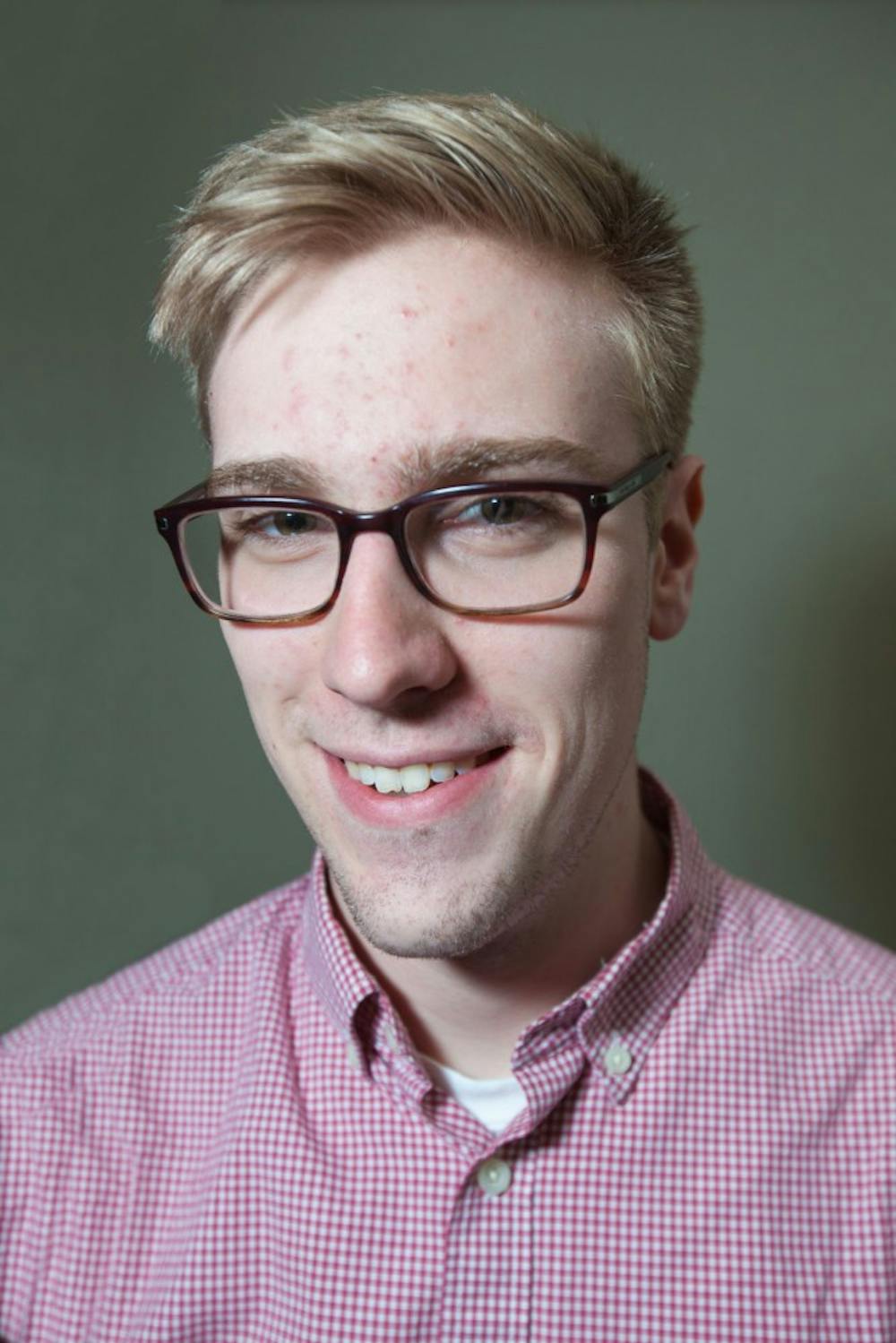Post Staff Writer William T. Perkins participated in the Athens County Commission on Disabilities' "Disabilities Speak."
Thursday morning, I climbed into my car, put my keys into the ignition and heard the low growl of the engine revving up.
As I pulled out of Jefferson Garage, rain sounded off my car’s roof and windshield. I turned my music up on my car’s stereo.
I didn’t think about the sounds I heard — the engine, the stereo, the rain, the GPS. I didn’t think about how much those sounds helped me to orient myself.
But I would notice them when they were gone.
That afternoon, I would lose my hearing.
Every year, the Athens City Commission on Disabilities organizes “Challenged by Choice” and “Disabilities Speak,” programs which challenge members of the community to take on a disability for the an afternoon and then share their experiences.
The events aim to “bring awareness to the obstacles people living with disabilities face in the community on a daily basis,” according to a news release from Rose Dikis of the commission.
The participants — myself and 10 others — met at Bob Evans, 357 E. State St., at 11 a.m. to receive our “challenges” and instructions for the day.
I think most of us assumed the challenging part of the experience would be adjusting to the temporary disabilities handed to us.
I thought my challenge was hearing impairment. I was given earplugs and shooting earmuffs to wear, which blocked out most of my hearing.
But, by the end of the night, I realized that the experience went beyond being “deaf” for a day. We were being challenged to change our attitudes and our perceptions about what it meant to be disabled.
Bob Boldon, head coach of Ohio University’s Women’s Basketball team, had to wear an eyepatch over one eye.
Edith Dashiell, journalism professor at OU and Rich Campanelli, head of Athens Arts Parks and Recreation, wore headphones that simulated the experience of someone who hears voices.
Dazmond Patterson, a junior running back for the OU football team, was put in a wheelchair.
I asked Patterson what he expected to get out of the event.
“It’s going to be an experience, for sure,” he said.
Patterson said he was most worried about his ability to access his apartment, which was is on the second floor, and that he’d likely have to cancel plans to go to Strouds Run that afternoon with friends.
{{tncms-asset app="editorial" id="2306de88-e3b9-11e4-8a09-574dd3ef87dd"}}
In my History of American Journalism class, I found it hard to concentrate on the video that was being presented. I could pick out a few words, but found my thoughts tended to be louder than the documentary.
After class, while I got coffee, it took me several seconds to realize that my order had been called.
Athens Mayor Paul Wiehl, who had participated in the event about five years ago, said Wednesday that although some of the other temporary disabilities were more physically challenging, the hearing impairment challenge had an emotional aspect to it.
“The lack of hearing is actually more isolating, in one sense,” he said.
J.W. Smith, an associate professor of communication studies at Ohio University and the keynote speaker at “Disabilities Speak,” said it wasn’t good enough for able-bodied people to simply feel sorry for those who are disabled.
“We need you to respect us in a way that is meaningful,” he said.
He said that included involving disabled individuals in decisions that affected them, and using sensitive terminology.
“If you can’t or won’t help us, then please get out of our way and stop hindering us.”
That evening, I drove back, music playing once again, with my robot-voiced GPS to guide me.
I was happy to have my hearing back. But I was happier to have reached a new understanding, the understanding that although I am able-bodied now, I might not always be.
When that day comes — as it will for all of us — I’d like to live in a world that respects me in a meaningful way.
@wtperkins
wp198712@ohio.edu






